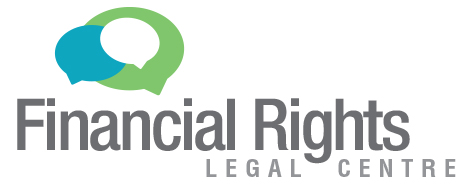This fact sheet is for information only. You should get legal advice about your personal situation.
Main ideas
• Credit providers have ‘responsible lending obligations’.
• Credit providers must check that any credit they provide meets your needs and is affordable.
• Get legal advice if you think you may have been given credit ‘irresponsibly’.
In this fact sheet:
Credit providers must lend responsibly
• When a loan must be assessed as unsuitableProblems with assessing credit suitability
What to do if you received credit that was unsuitable
• Get information
• Consider the circumstances when you were given credit
• ComplainIf a credit provider did not lend responsibly
• If the loan was unsecured
• If the loan was secured
• If you did not receive any benefit
Credit providers must lend responsibly
Before you are given a loan or a lease, credit providers (including lenders, brokers and lease providers) must:
- ask reasonable questions about your needs and goals
- ask reasonable questions about your financial circumstances (such as your income and expenses, assets and debts)
- take reasonable steps to check the information you gave about your financial circumstances is correct (such as by asking for payslips or Centrelink income statements or bank statements).
What is reasonable depends on many different factors, including the type of loan (how large it is and how long the long term is), and your situation. ASIC’s Regulatory Guide 209 describes what is reasonable.
Lenders also have extra checks to do for:
- Credit cards. The lender must check you can repay the whole limit within 3 years. This was introduced on 1 January 2019 and applies to new credit cards and credit card increases after this date. Before then, credit card companies would check you could afford the minimum payments if you reached the credit limit (usually 2 or 3% each month).
- Cash loans (under $2,000 and for less than a year). Read our fact sheet about Easy cash loans.
- Consumer leases. From 12 June 2023, the lease company must get copies of your bank account statements for the last 90 days to check you can afford the lease and to check that you are not payment more than 10% of your net income towards all your consumer leases. Read our fact sheet about Consumer Leases.
Responsible lending obligations apply to loans/leases (or increases to loans/leases) offered by banks after January 2011 (other providers from June 2010), and that are regulated under the National Consumer Credit Protection Act 2009 (Cth) (National Credit Act). Read our fact sheet about the National Credit Act to find out when it applies.
When a loan must be assessed as unsuitable
A loan is unsuitable if, at the time of the assessment:
- you could not make the loan repayments, or could only make the repayments with substantial hardship (for example, by missing out on essentials like groceries to make loan repayments)
- the loan does not meet your needs and goals.
Problems with assessing credit suitability
Common problems when assessing the suitability of a loan include:
- The credit provider used a living expense figure that was much lower than your actual living expenses.
- The credit provider did not include all your debts (such as repayments on other loans).
- The credit provider overestimated your income (for example, by not accounting for deductions from your Centrelink payment, or using one-off or uncertain bonuses).
- The credit provider did not consider likely future changes to your financial position (for example, not taking into account that you are going to retire soon).
- The credit provider didn’t consider how you would pay the final balloon payment on a car loan.
- The lender added you as a co-borrower but the loan was actually for someone else. If you were experiencing family violence of any form, read our fact sheet about Financial Abuse and Family Violence for information and options.
What to do if you received credit that was unsuitable
If you are struggling because a credit provider gave you a loan/lease that you now think was irresponsible, you can complain.
Get information
Ask the credit provider to give you your loan application form, verifying documents, and a copy of their assessment.
Ask the lender how they worked out if you could afford the loan. People tend to underestimate their expenses, so ask the lender if they compared your estimated living expenses to your actual spending (for example, by looking at your bank account statements).
Also ask if the lender used a benchmark, such as the Household Expenditure Measure (HEM) or the Henderson Poverty Index (HPI). These benchmarks estimate how much your living expenses are based on factors like how many dependents you have, where you live or if you work. It is important to check your lender used the right information for your household.
HPI or HEM can be a useful shortcut for a lender to use to check if your declared living expenses are realistic for someone in your situation. But the lender must always use your actual living expenses to work out if you can afford a loan or not.
For example, you might estimate your living expenses are $500 a week. The HPI or HEM benchmarks say someone in your situation needs $600 a week to live on. The lender could use the $600 a week figure as a starting point to work out what to lend you. But the lender must use your actual living expenses. If your bank account statements show you spend $640 a week in living expenses, then the lender should use $640 a week.
Read our fact sheet about Getting Loan Documents and use our Requesting Documents sample letter.
Consider the circumstances when you were given credit
Think back to the time when you applied for credit. Consider:
- Was the loan/lease (including the terms) what I wanted? Was I prepared to accept the terms so I could get credit? Was it enough to meet my needs and goals?
- Could I afford the loan/lease without going without things I needed (like groceries)?
- What was I asked about why I wanted the loan/lease, about what my goals were?
- What was I asked about what kind of terms I wanted in the loan/lease?
- What was I asked about my financial position? Did they ask about:
- my income?
- my living expenses?
- my accommodation expenses?
- my other loans and liabilities?
- How did the credit provider check this information? Did they ask for copies of:
- my payslips or Centrelink statement?
- my bank statement?
- my credit report?
- What was my actual financial position at the time I entered into the loan? How much did I have left over at the end of every month? What was:
My income
Less accommodation expenses
Less living expenses
Less existing loan repayments
Less the new loan repayments - Did I give the credit provider any false or misleading information? Did I give them any forged documents? If you have any concerns, get legal advice.
Consider whether you agree with the credit provider’s assessment that the loan was suitable for you. If not, why?
Complain
If you have given the lender false information, get legal advice first. There is normally not a problem if you made a mistake or miscalculation on your application. But if you intentionally or recklessly lied or used forged documents, you need legal advice first. It can be a criminal offence, like ‘obtaining money by deception’. Legal advice is confidential – you can then choose what steps to take next.
Get legal advice about the outcome you can expect, and whether you should continue payments – complaints take time to resolve.
Complain first to the credit provider’s internal dispute resolution team. Contact details are available on the AFCA website. Use our Responsible Lending sample letter.
If you cannot resolve the matter with the credit provider, you can complain to AFCA. Complaining to AFCA is free. Read our fact sheet about Financial Complaints to AFCA.
If a credit provider did not lend responsibly
If the credit provider did not lend responsibly and the loan was unsuitable, the outcome depends on a few different factors. Get legal advice about your situation.
Generally, the idea is to put you back in the same position you would have been in if the loan was never approved. This means that the credit provider should not profit from the loan, and you should pay for the benefit you received.
If the loan was unsecured
Generally:
- You should repay the benefit (the amount you spent) through an affordable payment arrangement.
- Any payments you have already made should come off the benefit amount. If you have already paid more than the benefit, ask for a refund of the difference.
- The credit provider waives or removes any fees and interest charged to the loan.
If the loan was secured
If a house or car was purchased using the loan money, calculating the benefit you received can be complicated.
For example, for a home loan that was used to buy a property:
- You may need to sell the property (since you could not afford it in the first place). But if the mortgage is very small, and you can repay the rest quite quickly, you may be able to negotiate a repayment arrangement.
- The credit provider may compensate you for losses, less any benefits you received.
Your losses could include stamp duty, purchase costs, and interest.
Your benefits could include what you would have paid in rent, and increases to the value of the property
Sometimes there may be no loss; property price increases may be the same as all losses.
Get legal advice, these calculations can be complicated –especially if there were refinances or extra advances involved.
If you did not receive any benefit
If you clearly did not receive any benefit from the loan, the outcome may be:
- The credit provider releases you from the debt.
- The credit provider refunds all payments you made.
Some situations where this may occur are where:
- you were forced into a loan because of family violence or financial abuse, read our fact sheet for more information
- you were misled into signing documents putting you down as a borrower for someone else’s loan.
Whether the credit provider knew or should have known about the problem is often a relevant factor.
Get legal advice, as the outcomes will change depending on your situation.
If you are in NSW, you can ring our Credit & Debt Legal Advice line on 1800 844 949.
Need more help?
For a list of other resources, read our Useful Links page.
Last updated: January 2023

